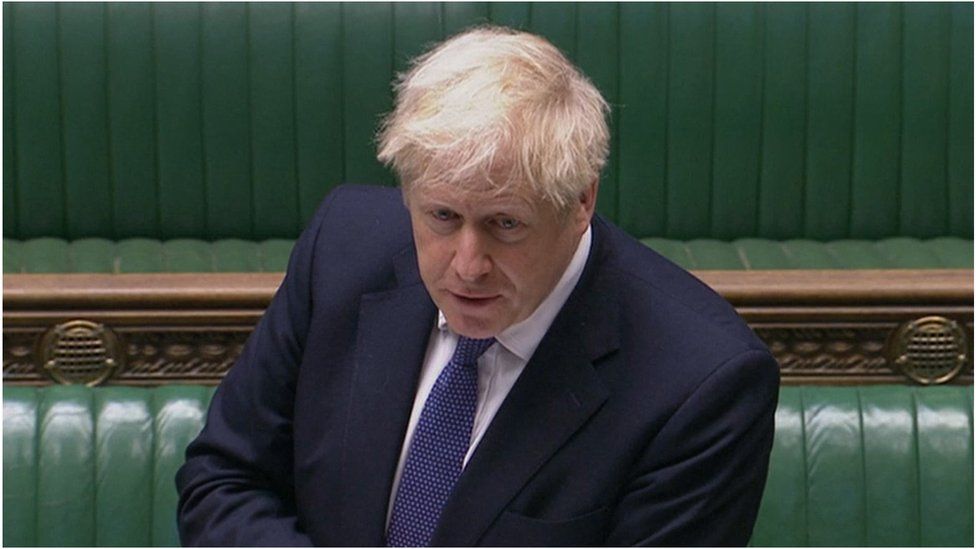Covid: Do all tier 3 area workers get 80% of their wages?
- Published

The claim: Employees unable to work in tier 3 areas will get a combination of Job Support Scheme and Universal Credit, which will mean they get 80% of their wages.
Verdict: While that will be the case for some workers, especially those on very low incomes, some workers will get less than 80% under the new scheme.
The prime minister has repeatedly claimed that employees of closed businesses in tier 3 areas will get 80% of their income.
This is important because the furlough scheme, which closes at the end of October, made sure such workers received 80% of their wages up to a maximum of £2,500.
But the Job Support Scheme, which will replace it in November, will provide 67% of normal salary up to a maximum of £2,100 a month.
Greater Manchester Mayor Andy Burnham and several MPs have called for the support to be increased to 80%.
But Boris Johnson claims that the addition of Universal Credit (UC) means that it is already worth 80%.
"Combine the Universal Credit with the Job Support Scheme that we've just announced and workers will be getting 80% of their existing salary," he said at Prime Minister's Questions on 21 October.
Whether a worker gets Universal Credit on top of the job support scheme depends on a number of factors such as the level of their income, whether they have savings and whether they have children.
When the prime minister made the claim on 16 October he specified that he was talking about those on low incomes - clearly those on higher incomes will not qualify for Universal Credit and may be above the £2,100 a month limit for the Job Support Scheme.
It is certainly the case that some workers on low incomes will get at least 80% of their usual wages. In particular, people whose wages were low enough for them to qualify for Universal Credit before their employers were forced to close, are likely to get at least 80% of their wages.
But it is also the case that some workers will get less than 80%.
We asked the Department for Work and Pensions how the prime minister had reached this figure and were told: "Those on low incomes getting the full entitlement [of Universal Credit] will receive at least 80% of their normal income."
The DWP said that the full entitlement meant the amount that you would get without reductions for having savings.
The point is that the prime minister failed to mention those who do not get UC at all, or only get a bit of it, who would receive less than 80% of their usual income.
An example comes from from the Institute for Fiscal Studies - a single person with no children who owns their own home and earns £11,000 a year, would be entitled to a bit of UC if they were put on the Job Support Scheme, but not much, so they would end up on 73% of their usual income.
Also, the amount of UC you are eligible for starts reducing once you have £6,000 in savings and a worker who has £16,000 in savings will not qualify for any UC, regardless of any other factors. So such a worker would not get 80%.
- A SIMPLE GUIDE: How do I protect myself?
- AVOIDING CONTACT: The rules on self-isolation and exercise
- WHAT WE DON'T KNOW How to understand the death toll
- TESTING: Can I get tested for coronavirus?
- LOOK-UP TOOL: Check cases in your area